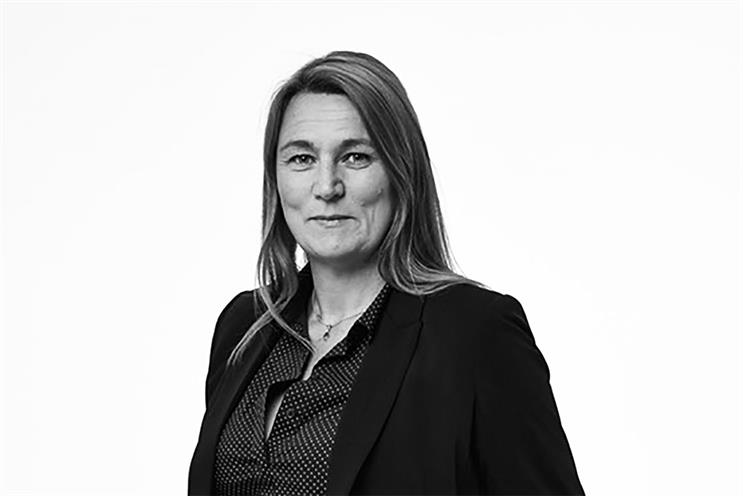
Future’s Zillah Byng-Thorne has said her £140m purchase of TI Media is a "strategic, rather than transformational" deal as she plans to turn the newly acquired business into a "modern media company".
Byng-Thorne, chief executive, said the marriage of Future’s 60% male audience with TI Media’s 63% female audience means the enlarged company can "suddenly" offer "a genuine mass-market readership from an advertiser’s perspective".
Future’s specialist sectors include technology, gaming, entertainment, photography, music and home interest, with titles such as TechRadar, Classic Rock, Guitar World, FourFourTwo and Cyclingnews.com.
TI Media’s specialisms include women’s lifestyle, gardening and wine, with publications such as Country Life, Decanter, Woman & Home and Wallpaper*.
The combined business will have in the region of £150m in ad sales globally – with about £60m coming from TI Media.
Byng-Thorne praised TI Media’s expertise, particularly in advertising sales, but said the publisher, which used to be known as Time Inc UK and previously IPC Media, had been slow to adapt to the digital world and still gets 85% of revenue from print.
"If you’re going to be in media today, you have to be able to disrupt yourself because the technology drives that [disruption] and the competitive sets that we operate in make that harder and harder," she told 北京赛车pk10.
"For maybe some of the older, larger businesses, it’s been harder for them to get the oil tanker to move in the same way."
Byng-Thorne dismissed the suggestion that Future was merely a consolidator in a shrinking market and said she sees "a growth opportunity" as her company brings its digital expertise to bear on TI Media.
"There’s an opportunity for a realignment in terms of not losing that wonderful content but finding a more nimble way to distribute it," she said.
'Non-magazine media'
Future has grown strongly under Byng-Thorne since she became chief executive in 2014, as she has reduced dependence on print, which the company describes as "magazine media".
She said: "The underlying Future business already has lots of momentum. Half of the business is in the US, before we add on this acquisition, and 70% of revenues are in the media division – ie non-magazine-related." That includes digital advertising, ecommerce and events.
"We have created a ‘modern media company’ [with Future]," she said. "What is exciting about this acquisition is that we are buying some fantastic content and some fantastic brands. I don’t think they’ve yet made that transition to ‘modern media’."
The enlarged business will still be "more than 50% digital" in its first year and "contribution will be 60% from non-magazine-related media", she said, adding: "Had we not done this [deal], we might have gone on to 80%."
She insisted acquiring TI Media will not hold back Future’s growth.
"Not at all – it’s the opposite. It is just hugely exciting. It gives us content we don’t have," she said, pointing to areas such as women’s lifestyle and gardening.
"The thing we believe in is expertise and that’s our mantra: ‘You can’t publish anything unless you’re experts.'"
Cost savings
Byng-Thorne has told investors that Future can find £15m in annual "synergies" within two years.
Asked where the axe could fall, she said it is likely that Future could take out a lot of "unemotional" costs such as "contract savings, software overlap and property consolidation", as well as "some savings in the back-office area".
The two companies employ over 1,000 staff each.
She added it would be "wrong" to discuss job cuts at this point when there has not even been a consultation.
However, she pointed out: "If you look at the past three or four acquisitions we’ve done, the one area we haven’t taken savings historically is editorial, and we generally try and protect the sales teams as well."
She went on: "Our business model at Future is to integrate to the lowest cost of location and to have centres of excellence and hubs. That’s how we will be looking at how we approach this.
"If we buy a business that’s got much more expertise than any other area we have, we’re happy to lean in to that. There’s not always a foregone conclusion that we’re best. We’re much more interested in: 'Let’s find the best of both.’"
Admirer of TI Media's ad sales proposition
Future has a turnover of about £200m, of which roughly half comes from advertising.
TI Media also has sales of £200m, but Byng-Thorne said it is probably going to bring in closer to £175m going forward because some parts of the business don’t make money. About a third of turnover comes from advertising.
"One of the things I admire immensely about the Time business is the relationship they have with their advertising partners and they’ve got a great reputation in the market. We would certainly want to support that," she said.
Advertising remains key, particularly for Future’s consumer-facing titles, because of the need to drive reach with a free model.
"We have broad audience reach and highly engaged users who are reading content which is specialist in its nature – so they’ve already made a decision that it’s something that interests them – and therefore it’s a really good place for brand association and also close to purchase," she said.
Byng-Thorne highlighted Decanter, a premium title for wine fans, because it shows that readers will pay for content when it is "specialist" and "unique". That is "a business model that we could scale out", she said.




.jpg)
.jpeg)
